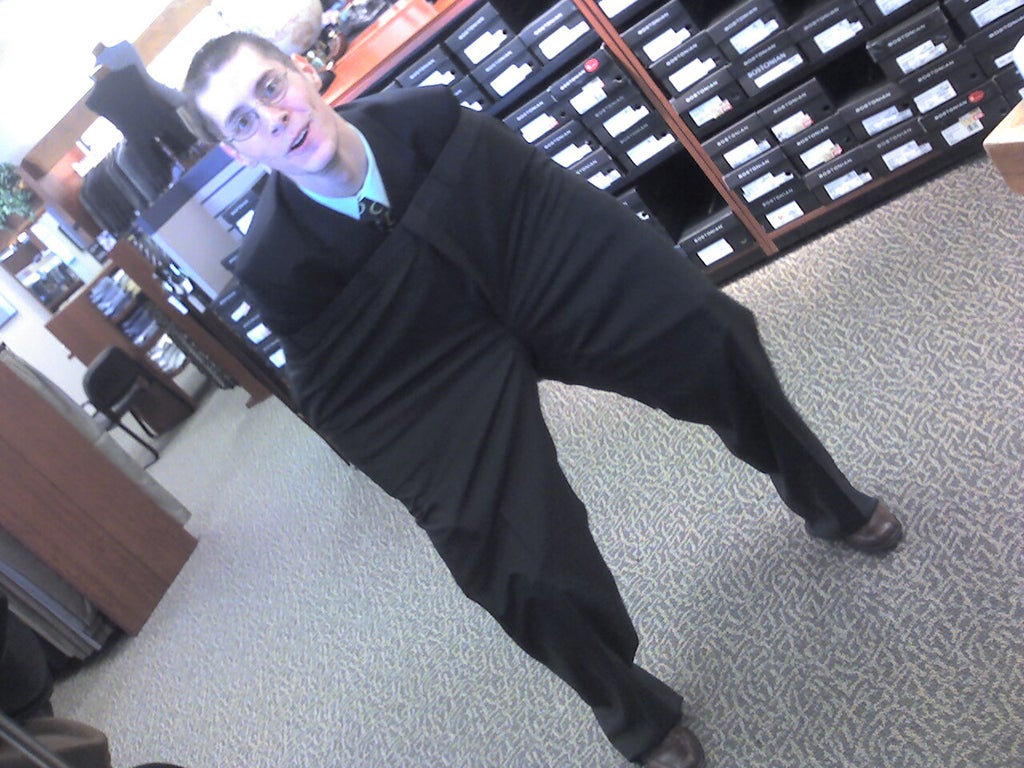What have I been doing with the first 20 years of my life?
There's only one thing more terrifying than a high achiever, says Chad Greggor; a high achiever who's still a teenager...

Your support helps us to tell the story
From reproductive rights to climate change to Big Tech, The Independent is on the ground when the story is developing. Whether it's investigating the financials of Elon Musk's pro-Trump PAC or producing our latest documentary, 'The A Word', which shines a light on the American women fighting for reproductive rights, we know how important it is to parse out the facts from the messaging.
At such a critical moment in US history, we need reporters on the ground. Your donation allows us to keep sending journalists to speak to both sides of the story.
The Independent is trusted by Americans across the entire political spectrum. And unlike many other quality news outlets, we choose not to lock Americans out of our reporting and analysis with paywalls. We believe quality journalism should be available to everyone, paid for by those who can afford it.
Your support makes all the difference.The Facebook social reader has no understanding of time. It will throw up articles that were written any period between a few hours ago to a different era entirely. One time-passing Facebook browse of an evening, when I chanced to click on an interview with Caitlin Moran, I was transported straight back to 1994.
The full extent of the time-shift was not fully felt until Moran started marvelling at a modern day necessity: ‘Having this new machine is brilliant. It's more fun than sex. I turn on the screen and can mainline the words straight into the computer.’
The article comments with not-so-subtle spitefulness on how young she is, just 19, and already getting '£500 for every thousand-word newspaper essay'. She writes for the Guardian, Observer and The Times, she has her own TV show and she never went to college. Suffice it to say ‘she makes a lot of people pretty sick.’ Somehow, though, the older Caitlin Moran of 2013 – who is no less successful than her 19 year old self – would not quite inspire the same gut wrenching fit of bilious envy.
There is something about a young achiever which induces a kind of astonished hatred. At least when a walking success magnet is old we can attribute their achievements to the accumulation of experience and the slow, steady grind. Years of toil which have brought them to where they are. But there is no such allusion in, for example, Channel 4’s show Child Genius. Nine year old Oscar can recall the sequence of a full deck of cards, shuffled, while another girl named Shrinidhi is apparently writing her fourth novel.
Regardless of how adorable these pint sized mega-minds are, they still inspire an envy that approaches detestation. We hardly even need to mention Justin Bieber, whose wealth and smugness are expanding at equal rates. And then there are The Strypes, a band who have already appeared on Later... with Jools Holland and performed at Glastonbury, whose members are all between the ages of 14 and 16.
‘What have I been doing with the first 20 years of my life!?’ is the question which normally scratches at the back of an average student’s eye sockets when staring in disbelief at the age of some child genius or young-talented columnist or insufferably popular musician. We are under the impression that success grows infinitely. That because someone is young and successful now they will one day be older and even more successful, having achieved everything at the same exponential rate. If that were true, presumably Caitlin Moran would now, 20 years on, be ruling the media world from atop a golden throne located in her palace on the moon or something.
But the jealousy we have for young achievers all seems rooted around a deep sense of self-deficiency. Why, though, do we need to achieve success in such a hurry? If you are just starting university this year, or even graduating, if you haven’t made a platinum selling album yet or managed to get past the 2,000 word mark on that novel that you always wanted to write or created your own mathematical theorem, it doesn’t mean that you will live a life of failure and obscurity.
Take James Murphy, for example. Lead singer of LCD Soundsystem, he released his first album at 35 a self-proclaimed old man of the music industry. Or Seasick Steve, who released his first album at 60. I choose musicians as an example because they are ordinarily expected to be drug-addled teenagers or smarmy adolescent YouTubers. Yet these two artists have broken the norm. While young achievers may have reached their peak at an early stage, the more modestly gifted, late bloomers amongst us are still working towards it, and that, I think, is just fine.
Join our commenting forum
Join thought-provoking conversations, follow other Independent readers and see their replies
Comments